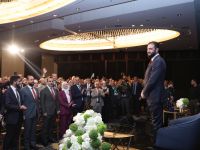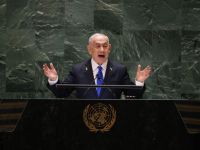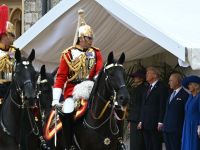Venezuelan President Hugo Chavez on Thursday was to become the first head of state to visit Iraq since the Gulf War as part of his high-profile and controversial tour of fellow OPEC nations. Chavez met earlier in the day here with Iranian President Mohammad Khatami and Oil Minister Bijan Namdar-Zanganeh, but it is his planned meeting later with Iraqi leader Saddam Hussein in Baghdad, where OPEC was founded in 1960, that has grabbed the spotlight.
The Venezuelan president, fresh from re-election victory, is visiting OPEC nations to extend a personal invitation to a rare summit in Caracas next month that will gather the cartel's heads of state for only the second time in the group's history.
Chavez, who has irked US officials in the past with his support for Cuban leader Fidel Castro, has again drawn the anger of Washington by including Iraq on his itinerary. "It's just not the right thing to show up in Baghdad, particularly as a democratic leader visiting a dictator," a US state department spokesman said earlier this week. "We think that's particularly inappropriate."
But Baghdad plans to roll out the red carpet for what a spokesman called its "dear guest" and blasted US criticism of the visit to Iraq, which is still under international sanctions put in place after the Gulf War.
"We see the blind perserverance of the United States in stupidly interfering in the affairs of other countries," an Iraqi foreign affairs ministry spokesman told the official INA news agency.
Baghdad's official press Thursday also ladled out the praise for Chavez, who can expect a five-star welcome in the Iraqi capital. Venezuelan Foreign Minister Jose Vicente Rangel has rejected US criticism of the trip as "absurd."
Chavez will avoid violating the ban on international air travel to Iraq by crossing the border from Iran on land, where officials and journalists will be on hand for the historic crossing.
Venezuela, the third largest exporter and only Latin American member of the cartel, currently holds the rotating presidency of OPEC, which last brought its heads of state together in Algiers in 1975. Once again the cartel will be transformed from a professional association into a diplomatic force and OPEC members have expressed their delight at its resurgent power to move the world market.
The group's production cutbacks were instrumental in sparking a rebound after crude prices dipped to record lows -- so successful that now the cartel is trying to maintain stability in the racing market.
Crude prices on Wednesday surged over $30 per barrel in the United States, the world's largest oil consumer, on reports that stocks had reached a 24-year low.
OPEC bickering over the production controls was heightened after Saudi Arabia, the world's leading oil producer, said last month it would hike output by as much as 500,000 barrels per day. Because of the sanctions in place against Iraq, it has been excluded from the cutback agreement.
Chavez on Wednesday was in the United Arab Emirates, where Crown Prince Sheikh Khalifa bin Zayed al-Nahyan vowed the cartel would push toward calming the market. "The differences within OPEC over production quotas can be sorted out with more seriousness and realism, far from any individualism," he said, quoted by the Emirati state news agency WAM.
"An agreement in view, harmony (among OPEC members) and a common position will permit a filling in of the gaps to guarantee market stability," he said. Chavez is due to go from Iraq to Indonesia, Libya, Nigeria and Algeria, before returning next week to Caracas, where the OPEC summit has been scheduled for September 27-30.
© Agence France Presse 2000
© 2000 Mena Report (www.menareport.com)







